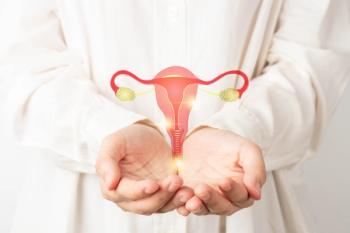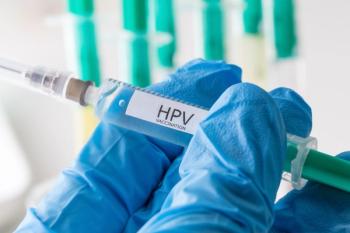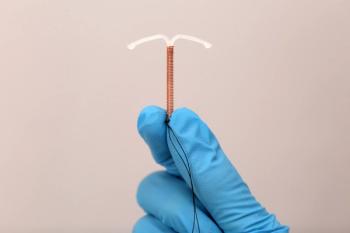
In a recent study, endometriosis-associated pain was reduced among patients taking elagolix, with bone mineral density mitigated using add-back therapy.

In a recent study, endometriosis-associated pain was reduced among patients taking elagolix, with bone mineral density mitigated using add-back therapy.

In a recent study, the prevalence of gynecological cancer trials was reduced in states with high economic vulnerability and minoritized populations.

A recent study reveals that reduced endometrial thickness significantly increases the risk of placenta accreta spectrum disorders in women without prior cesarean deliveries using assisted reproductive technology.

A new study highlights how depression may drive dysmenorrhea through shared genetic pathways, emphasizing the need for mental health screening and holistic care for women.

A recent study found a sharp rise in Medicare claims for multiplex urinary tract infection testing from 2016 to 2023, underscoring a significant financial impact and the need for further research into its clinical benefits.

A recent study highlights the reduced cost-effectiveness of expanding human papillomavirus vaccination to adults aged 27 to 45 years compared to younger groups, though targeted strategies for high-risk subgroups indicate benefits.

Women experiencing severe maternal morbidity during their first pregnancy face significantly lower odds of subsequent births, emphasizing the need for personalized reproductive counseling and ongoing monitoring.

Discover how innovative self-collection methods and the BD Onclarity HPV assay are breaking barriers in cervical cancer screening, empowering underserved communities with accessible and accurate care.

A new study highlights the association of maternal soluble Fms-like tyrosine kinase 1 and endothelin 1 with preeclampsia severity, offering insights into the pathogenesis of early- and late-onset forms of the condition.

Jean Dubuisson, MD, PhD, head of the gynecological surgery unit at Geneva University Hospitals, discusses the first successful hysterectomy performed using the MIRA surgical system.

A recent study highlights the release of chemoattractants from human fetal membranes at term, driving leukocyte activation and migration, with implications for labor and postpartum recovery.

Review some of the top stories from the Contemporary OB/GYN website over the last week, and catch up on anything you may have missed.

A new study highlights the efficacy of couple-based reproductive genetic carrier screening in improving reproductive decisions and outcomes, emphasizing its growing availability and acceptance among diverse populations.

A new study found that fine particulate matter exposure during pregnancy significantly increases the risk of spontaneous preterm birth, emphasizing the need for mitigating environmental factors.

A study highlights the poor quality of online information about urinary tract infections and asymptomatic bacteriuria, raising concerns about inaccurate diagnoses, overtreatment, and antibiotic resistance.

New research highlights that low levels of placental growth factor during mid-pregnancy screening can effectively predict early preterm birth, offering a potential tool to enhance maternal and infant health outcomes.

A large population-based study found that first-trimester tetracycline exposure does not elevate the risk of major congenital malformations, though specific risks for nervous system and eye anomalies warrant further research.

A study found that Obstetric Life Support education significantly improves health care providers' readiness and outcomes in maternal cardiac arrest management, advocating for broader implementation.

A study reveals no significant difference in 6-month intrauterine device use between placements within 48 hours or 2 to 4 weeks after a second-trimester abortion, though earlier placement carries a higher expulsion risk.

A new study finds that intrauterine instillation of 2% mepivacaine significantly lowers pain levels during intrauterine device placement.

A systematic review highlights increased risks of congenital anomalies in very young and advanced maternal age groups, emphasizing the need for enhanced screening in these populations.

A recent study suggests the ketogenic diet could positively impact menstrual cycles by boosting ketones, potentially unlocking new therapeutic insights for women’s reproductive health.

In a recent study, increased rates of spinal hypotension were observed among women receiving a higher plain ropivacaine dose during cesarean section.

The March of Dimes 2024 report reveals a troubling D+ grade for US preterm births, with significant racial and socioeconomic disparities fueling an urgent need for better prenatal care and targeted interventions.

A meta analysis highlights how kinesiotherapy post-breast cancer surgery may significantly improve patient quality of life.

In a recent study, a high polycystic ovary syndrome was found among reproductive-aged women in India, with phenotype C being predominant.

A population-based time-series analysis California before, during and after legalization show a rising trend in women using cannabis while pregnancy especially when the state has legalized the drug.

In a recent study, similar postoperative outcomes were reported in patients receiving anterior vaginal wall repair vs paravaginal repair for laparoscopic pelvic organ prolapse, including similar success rates.

Review some of the top stories from the Contemporary OB/GYN website over the last week, and catch up on anything you may have missed.

In a recent study, researchers recommended minimally invasive procedures vs hysterectomy for improved patient outcomes when treating uterine fibroids.